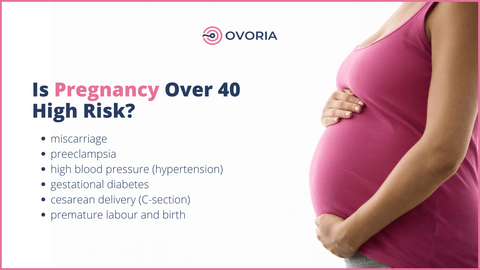IVF Treatment for Women Over 40
Many women are starting to back away from the idea of having kids after 35. They feel that it’s unlikely they can get pregnant. One of the reasons for this is a widely-held belief that fertility declines rapidly after 35, and this misconception makes it unlikely to be able to become a mother.

How Age Impacts a Woman’s Fertility?
The quality and number of a woman’s eggs decrease as she ages. The only way to fight this is through good health. However, age is the most important factor affecting fertility. According to research, the average female’s fertility starts to decline after age 35, and it declines more sharply after age 40; by age 45, the average woman has a less than 1% chance of getting pregnant per cycle.
Is Pregnancy Over 40 High Risk?
Advances in technology surrounding fertility, pregnancy, and delivery have made it possible to have a baby at age 40 safely. However, any pregnancy after age 40 is considered high-risk. Your doctor will monitor you and the baby closely for the following:
- Miscarriage;
- Preeclampsia;
- High blood pressure (hypertension);
- Gestational diabetes;
- Cesarean delivery (C-section);
- Premature labour and birth.
Fertility Treatments For Women Over 40
Assisted Reproductive Technology (ART) is less effective after women reach 40, and their chances of success continue to fall as they get older. For example, intrauterine insemination (IUI) has a success rate of about 5 per cent for women over 40. But if we talk about In Vitro Fertilization (IVF), the rates are slightly better—about 15% per cycle. That’s why IVF treatment is one of the most effective treatment options for women over 40. What is more, this treatment is not painful at all.
During IVF, doctors inject ovaries with fertility medications to make them produce multiple eggs. Then the eggs are surgically removed from ovaries and fertilized in a lab with partner’s sperm or donated sperm. The egg is fertilized outside the body and transferred to the uterus five days later. It implants itself in the uterine lining to continue developing.
References:


